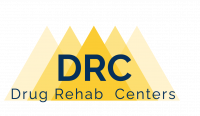Is Addiction a Disease?

ASAM (American Society of Addiction Medicine) and many other health organizations consider that addiction is a chronic medical disease. Addiction, clinically described as substance use disorder, involves interactions between brain circuitry, genetics, and personal life experiences. Central to all addictions is the compulsive use of a substance regardless of adverse outcomes. Read on to learn more about the nature of addiction.
Why Is Addiction Considered a Disease?
Addiction is recognized as a disease by leading health organizations, including NIDA (National Institute on Drug Abuse), NIH (National Institutes of Health), and APA (American Psychiatric Association). This classification is based on extensive research showing that addiction significantly alters brain function. These changes impair a person’s ability to make decisions, control impulses, and manage emotions, making it extremely challenging to resist the urge to use substances or engage in addictive behaviors.
Like chronic diseases such as diabetes or heart disease, addiction results in long-term alterations to the body’s normal functioning and has serious implications for health and quality of life. Factors like genetics and environment play an important role in the development of addiction. Genetic predispositions can increase the risk, while environmental factors like stress, trauma, and exposure to drug use can trigger its onset.
The chronic nature of addiction means that it can persist over time, and relapse is a common aspect, similar to other long-term health conditions. This highlights the need for ongoing treatment and support. Fortunately, addiction can be managed effectively through a combination of medication-assisted treatment, counseling, therapy, and support groups.
Is Addiction Genetic?
Research indicates that genetics can play a significant role in the likelihood of developing an addiction, but it is not the sole factor.
Studies have shown that genetics account for approximately 40% to 60% of a person’s susceptibility to addiction. This means that while genetic predispositions can influence the risk of addiction, environmental factors, personal experiences, and individual choices also play roles. These environmental factors can include exposure to drugs or alcohol, stress, social influences, and traumatic experiences.
Specific genetic variations can affect how a person responds to certain substances, influencing the likelihood of addiction development. For example, differences in genes related to the brain’s reward system can make some people more vulnerable to the rewarding effects of drugs or alcohol, potentially leading to higher risks of addiction.
That said, having a genetic predisposition to addiction does not guarantee that someone will develop an addiction. Lifestyle choices, coping mechanisms, and a supportive environment can mitigate the risk, even in those with a high genetic predisposition.

What Causes Addiction?
Addiction arises from a blend of factors, making it a multifaceted condition that cannot be attributed to a single cause. The development of addiction involves an interplay of the following variables:
- Genetic factors: Genetics can significantly influence a person’s susceptibility to addiction. Genetic predisposition accounts for up to 60% of the risk for addiction, affecting how someone might respond to substances and the potential for developing addictive behaviors.
- Environmental influences: A person’s environment can influence the risk of addiction. This includes factors like family dynamics, exposure to drugs or alcohol at an early age, socioeconomic status, peer pressure, and the availability of addictive substances.
- Psychological factors: Personal experiences, including trauma, stress, and co-occurring mental health disorders like depression and anxiety, can increase the likelihood of substance use as a coping mechanism, potentially leading to addiction.
- Properties of the substance: The addictive potential of a substance is also a core factor influencing the development of addiction. Some substances, due to their chemical properties, are more likely to lead to addiction because they provide a strong or immediate sense of reward or relief – opioids, meth, and cocaine, for instance.
- Behavioral aspects: Engaging in certain behaviors, like gambling or excessive use of digital media, can also lead to addictive patterns. These behaviors can trigger the brain’s reward system similar to substance use, reinforcing the behavior and making it difficult to stop.
FAQs
Is alcohol addiction a disease?
Yes, alcohol addiction is widely recognized as a disease because it involves changes to brain structure and function, leading to compulsive behavior and a lack of control over alcohol use despite adverse outcomes.
Is drug addiction a disease?
Drug addiction is classified as a disease because it is a chronic condition that alters the brain’s normal functioning, resulting in compulsive drug seeking and use that persists even in the face of harmful consequences.
How is addiction treated as a disease?
Addiction is treated as a disease through a combination of medical interventions, behavioral therapies, and support mechanisms. Treatment often includes detoxification, medication-assisted therapy to manage withdrawal symptoms and cravings, counseling, and long-term follow-up to prevent relapse. The approach is holistic and personalized, addressing both the medical and psychological aspects of the disease.

Find Treatment for Addiction at Drug Rehabs Centers
Both dependence and addiction can be disruptive and damaging. If you need help addressing problematic patterns of substance use but you have no idea how to get help, reach out to Drug Rehabs Centers in Southern California.
You can speak in confidence with trained professionals committed to connecting you with the resources and evidence-based addiction treatment you need at an appropriate level of intensity.
We can provide referrals to detox centers, inpatient rehabs, outpatient rehabs, and peer support groups, allowing you to access the treatment you need to initiate long-term recovery from drug addiction or alcoholism. Call (844) 739-2005 today and start tackling substance use disorder in California tomorrow.
